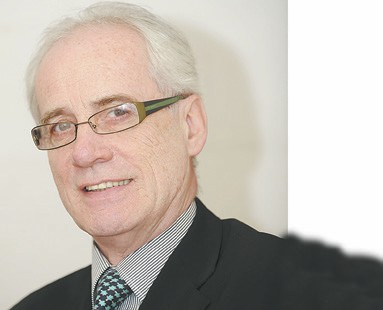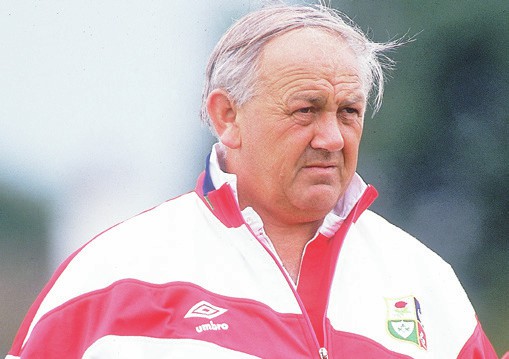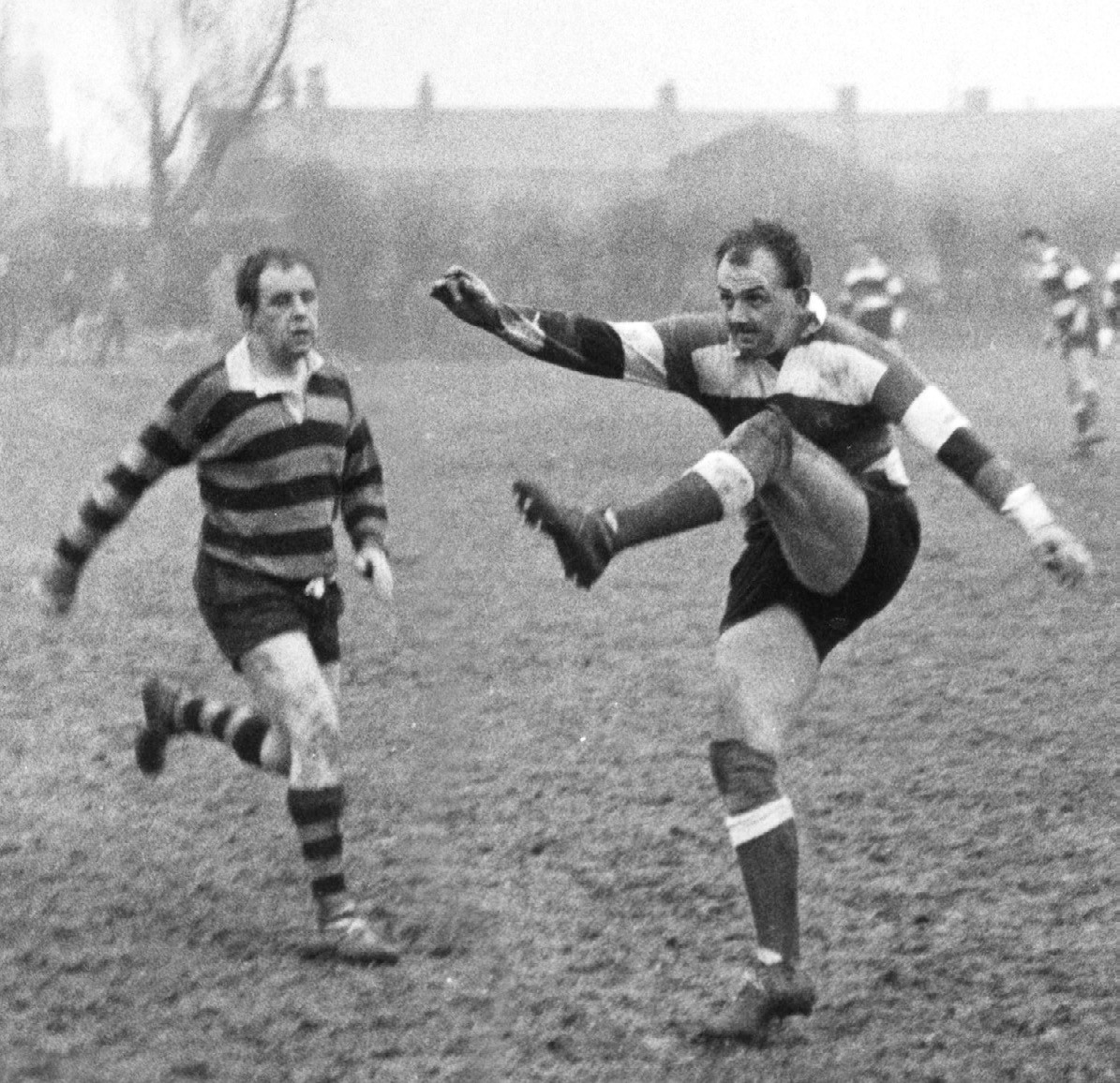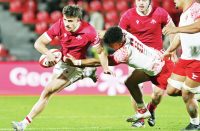THE MAN TRULY IN THE KNOW

IF ONLY Mark Twain had been born half a century later, on the banks of the Tawe instead of the Mississippi, he could have explored the Swansea valley and gone for a ramble round Cwmtwrch. There he might have bumped into the likeliest of local lads.
“Clive, bach, let me give you some advice,” the great American author could have told the boy Rowlands. “As you go through life, you’ll find there are three kinds of lies: lies, damned lies and statistics.”
Of all the stats generated by the golden years of trading in Triple Crowns, Grand Slams and Five Nations’ titles, the one which has become synonymous with Rowlands more than any other saved Wales from being white-washed during the first season under his captaincy.
The figure in question – 111 – refers to the number of lineouts at Murrayfield during the Siberian winter of 1963 when Wales beat Scotland 6-0. Rowlands never had a shred of doubt about the result justifying the tactic to his dying day, sadly shortly before the break of day last Sunday.
Those who played under ‘Top Cat’ as captain, as coach during the Second Golden Era of the Seventies, as manager at the first World Cup and on the Lions tour of Australia in the Eighties, will be spinning their own yarns when they gather on Monday August 21 to see him off on his final journey.
The idea that 111 lineouts could be crammed into 80 minutes has always sounded preposterous, a physical impossibility during an era when referees, as the sole judges of time, often made little or no allowance for injury stoppages.
The claim came from Bill McLaren, a commentator renowned as a stickler for accuracy. Nobody knows who actually kept count. When a retired brigadier questioned the accuracy of the figure, McLaren stuck to his guns. Rowlands, like the retired brigadier, didn’t believe it either but then he wouldn’t, would he?
“I’m not saying I didn’t kick the ball a lot that day but the figure that’s gone down in the history books makes no sense at all,” he once told me. “Think about it. If I’d kicked it into touch 111 times, it meant that Scotland threw the ball in 111 times.
“It also meant that we won it 111 times because I had to be kicking it. I’ve seen clips of the match. There’s one that lasts about a quarter of an hour and you don’t see me kicking the ball once in that time.”
The post-match furore forced the law-makers to act, banning direct kicks to touch from outside the 25 in those pre-metric times. In terms of changing the landscape of the game, Rowlands was only revving-up: as coach he would go into overdrive. His pre-match talks, stirring enough for the late Phil Bennett to describe them as ‘sermons’, have long passed into folklore: “By the end of his sermon, some boys would be head-butting the walls, others would be crying their eyes out.”
The Rowlands sermon would be delivered, almost without exception, on the Saturday morning at 11 o’clock. “Number one rule: make sure you are there at five to eleven. They’d sit down, then I’d look at their faces. In silence. Silence can be frightening. Silence is when you are thinking about your game. There was only one occasion in that room when I was afraid I had lost them.
“We were playing England at the Arms Park. I said: ‘Right boys, if you want to lose, it’s up to you. I’m off ‘. And I left.
“I went to the dressing-room earlier than usual and they were all there, with the same problem as me. They don’t want to lose either.
“Dai Morris (the Neath flanker known as ‘The Shadow’) sat in the corner with his hands clasped over his ears. ‘Look at Dai,’ I said to the rest. ‘Look at the concentration on Dai’s face. Making sure he does his bit to beat England.’ “At that point, Dai said: ‘Clive, will you shut up for one minute. I’m trying to listen to the two o’clock at Kempton.’

“Everyone in the room burst into laughter. Thank you, Dai. You’ve just done my team talk. We’re all laughing together and together we are a force. Let’s go out there and give them a hiding. Which we did.”
Despite the triple tragedy of losing a brother, sister and his father, Tom, all before he could reach double figures, Rowlands never lost sight of his dream, to play for Wales. Other achievements, as national coach, chairman of selectors, manager and president would have been beyond his dreams.
He had humour and charisma, never put to better use than in helping the Lions dig themselves out of a pit of bother to win the series in Australia in 1989 but only after Rowlands had talked Finlay Calder out of resigning the captaincy. For the Welshman’s birthday bash in Port Talbot, Calder travelled all the way from Scotland to be there with Lions from all four countries.

They and many, many more will be back in the old steel town on Monday week at 2pm for Rowlands’ funeral at Margam crematorium. Even those who spent their entire careers playing for him, like Sir Gareth Edwards, will be intrigued by a ‘cold case’ mystery of ‘Top Cat’ outfoxing the WRU.
As the untouchable leader of a street-smart gang of Manhattan alley cats from the smash-hit television show of the Sixties, ‘TC’ was always a step ahead of NYPD Officer Dibble. When the WRU served notice that their captain had broken the amateur laws, Rowlands appeared to live up to his nickname.
In recognition of his leading Wales to the Triple Crown and Five Nations title in 1965, Ystradgynlais District Council presented Cwmtwch’s finest with a new set of golf clubs as promptly displayed in the local weekly paper. Once the Officer Dibbles at the WRU saw it, they wrote to Rowlands informing him nobody could receive a gift valued at more than £10 without falling foul of the amateur regulations.
Unless he returned the golf bag with all its goodies, he would be declared a professional and drummed out of Rugby Union. Rowlands hid the clubs, kept shtum and the row, just like the endless Murrayfield lineouts, blew over.
Clive Rowlands, born May 14, 1938, died July 30, 2023. He is survived by his wife Margaret, daughter Megan and son Dewi.























